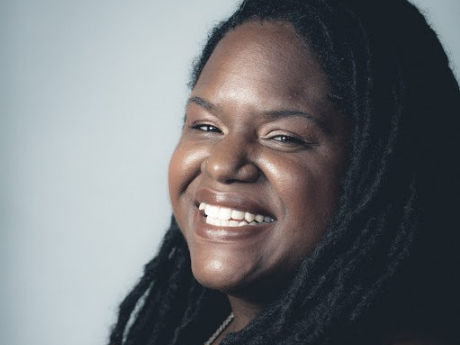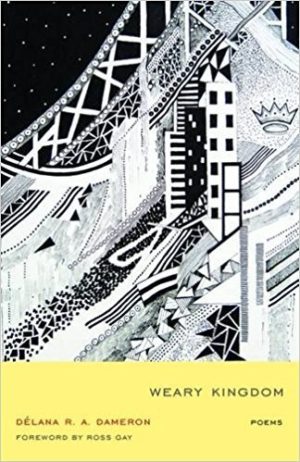In Their Own Words
DéLana R.A. Dameron on “Cartographer”

Cartographer
You believe my body a map. It is
an island to which you flock only to lose yourself,
to find solace or right angles to answer
the simple question: how do you get
from where you are, to here—the heart.
You walk the streets blind and don't know
on which side of my waist the sun
will set, or that the route you charted
will take you nowhere you intended
to go. You're lost and call me
all hours of the morning for direction. But
roads you travel lead up and out. Traffic lights
say, go. Here is the red line that runs the length
of my body. Because you study maps, you believe
this is the key. It is nothing more
than my heart saying pass through, pass
through. Lover, there is no more land,
no more West. There is no place for you to stay.
From Weary Kingdom (University of South Carolina Press, 2017). All rights reserved. Reprinted with the permission of the author.
On "Cartographer"
I am obsessed with maps. Their giving and withholding information. How, if one is to be a cartographer you must be able to say this road is here; this neighborhood is here; this train passes under your feet here. You travel and document. You travel again to confirm.
Maps ground me. I make mental pictures of a map I need for whatever city I'm in and chart my path(s) accordingly. Attempt to.
I think in new relationships we try to read the other person the way we are trained to read maps: does a handhold mean we are going east, towards something new, the direction of the sunrise? Does silence mean we are traveling west, the end of the road?
When we set out to map the whole of the US; when those weary travelers set out west to manifest their destiny; when the whole of the land was then conquered, what loss must they have felt if their whole raison d'etre was the new, the uncovered, the unconquered? Darwish asks: Where do you go when you've found the last sky?
When I first moved to the NYC region from North Carolina (however, I am from South Carolina) I was entranced by the idea of a network of subterranean trains that coursed the body of the city like blood veins. At the time I wrote "Cartographer", I lived in Jersey City but spent a considerable amount of time in Harlem—the quintessential mid-Atlantic birth home of black literary creatives (think Harlem Renaissance). Eventually, I would find myself living—and loving—there.
But each day I traveled into the city, I would spend time studying the large subway map to understand where to enter, where to exit. I didn't want to be found a tourist or new New Yorker by carrying a map. At the stations, I studied which colored line went from where to where. (Later, my now husband would explain that I was not to refer to train lines by color.) And the route I most often traveled was the red line from Wall Street, to Harlem or with a transfer, to Marble Hill to see about this guy, this musician of whom I was also enraptured as I was with the city itself, its possibilities, its vast networks of places to enter to create to find love and home and solace.
When it was clear that our relationship was nearing its end; when the musician guy would call and say meet me here or here or how can I love you better?, I was thinking about the ways a map gives you the information you need. I was thinking about how my growing distance from him might also be the answer if he looked: there is a legend, and like the city there is a grid. If you understand those key features, and most certainly your destination, there can be, almost no need to ask for directions, right?
But the city, as I did, teaches me hard. That trains will switch directions. That a route you might have planned, indeed were sure of, might lead you "nowhere you intended to go." That though one might find himself or herself confident in one's mapmaking and map-reading capabilities, there is still so much room for error. We look for answers when we only have questions; we don't want to be lost and found stranger to the landscape we want to conquer; we want to know—be shown—the right way to go.



